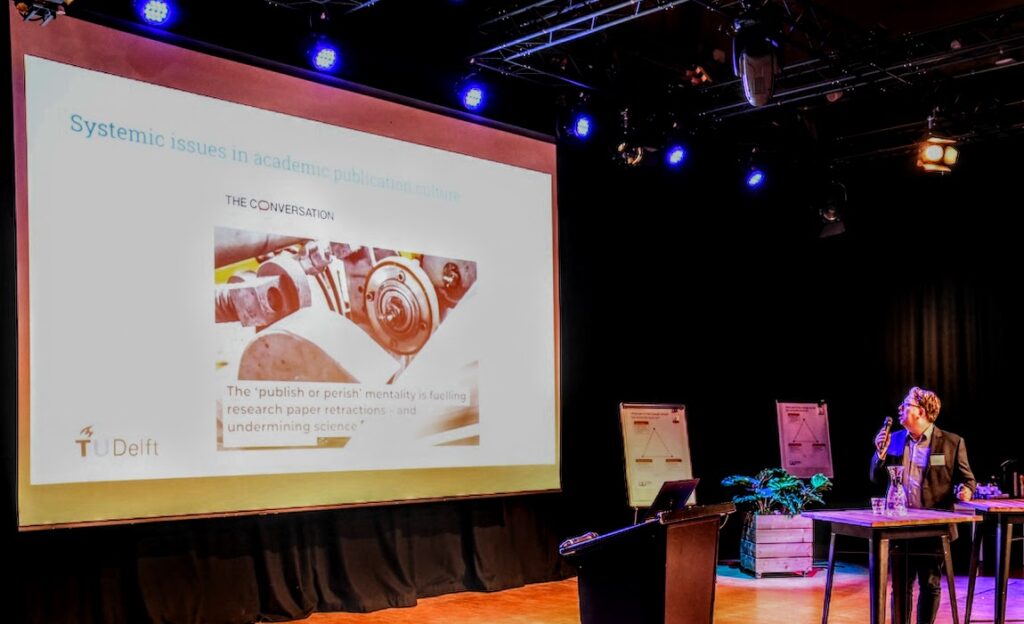To change any culture, you need to change the incentives that go with that culture. Within the context of university research, the developments within the Rewards and Recognition programme are crucial for getting away from the debilitating environment of Publish or Perish.
Professor Martijn Warnier is head of the Multi-Actor Systems Department within Delft University’s Faculty of Technology, Policy and Management. Like other scientists, he is concerned about the effect of the current publication culture – the ease by which ill-suited metrics are used within the review committees; the struggle to find peer reviewers; and the strain that the need to publish creates

Not all of these things are in his span of control. However, as a department head, he does have influence over both the publication culture and the manner in which the staff within his department are recognised for their work.
This led his department to adopt a specific philosophy:
“We do not focus on the number of publications, and would rather publish one good paper than several papers that are sub-par.“ And also: “Our publication strategy is to publish high-quality papers in high-impact publication outlets”
Specifically, this involved rethinking how science was evaluated.
Therefore, wherever there is a process related to tenure or promotion, candidates are no longer expected to provide an extensive list of publications. Rather, the candidate is asked to identify the five papers they are most proud of
And they need to explain, without using traditional metrics, why these five research articles.
Such an approach has immediate effects. Researchers no longer need to focus on multiple submission and review processes; there is less pressure to salami slice findings into several papers; chasing citations is of no importance. This all leaves more time for improving the quality of the research.
This direction positively noted by an external review of the department.
“The Committee found that promotions based on factors beyond fixed checklists seem to work well at TPM. The emphasis on the quality of publications rather than quantity is appropriate … It was noted that staff are encouraged to prioritise quality in their work.”
Professor Warnier’s department is just of the 40+ departments at the university. But it is part of a larger movement to rethink how researchers are evaluated – see for example the work of the Dutch funder NWO. And it also demonstrates one healthy approach to how publication culture can be changed.
